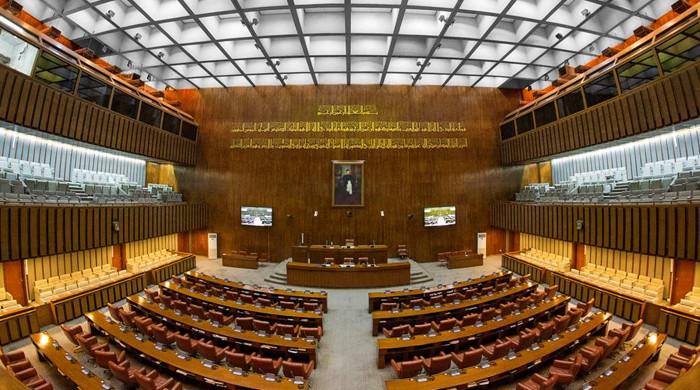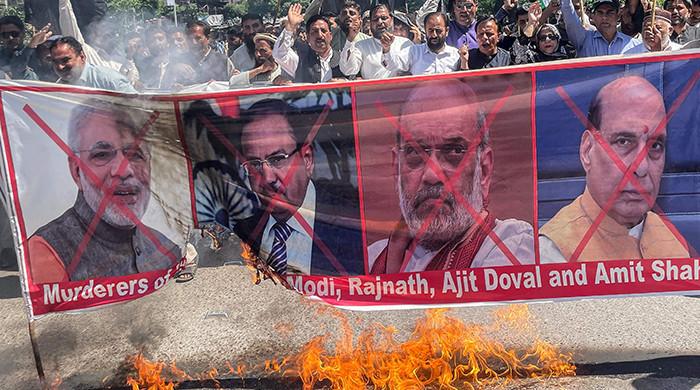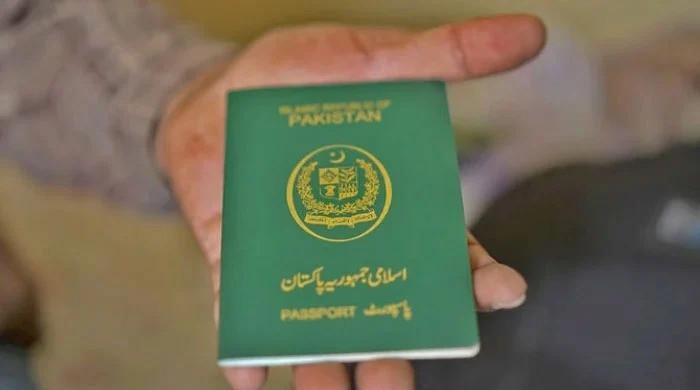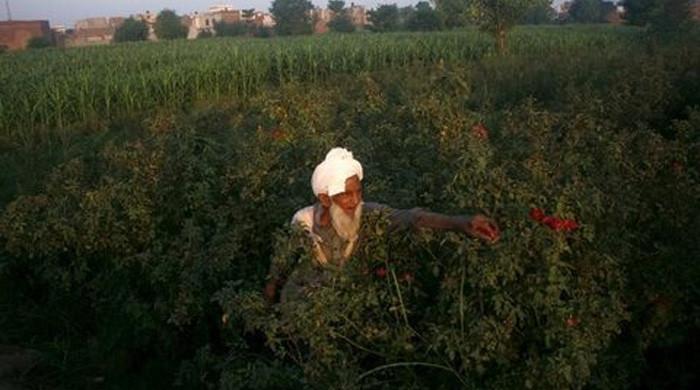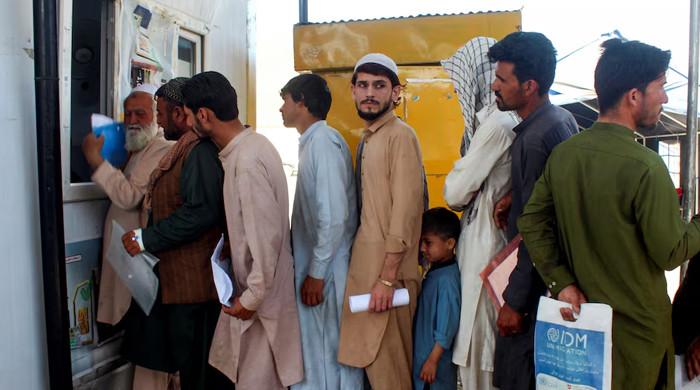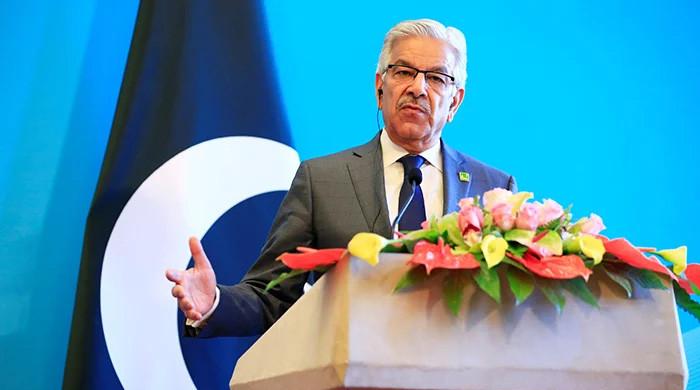Senate passes resolution rejecting India's claims linking Pakistan to Pahalgam attack
Upper House also denounces New Delhi's propaganda campaign, unilateral suspension of Indus Waters Treaty
April 25, 2025
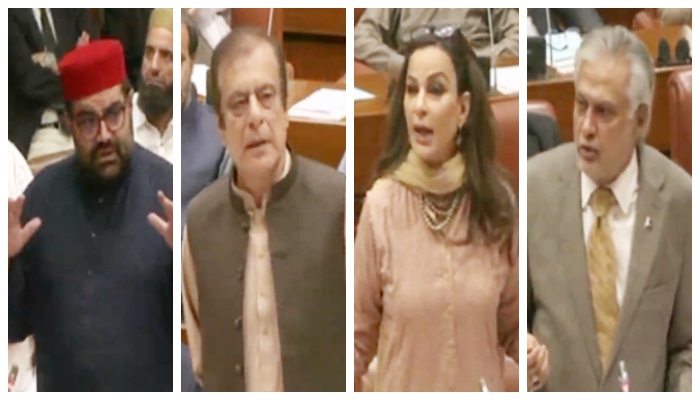
- Senate condemns India’s propaganda, water threats.
- Shibli says India failed to isolate Pakistan.
- Armed forces ready, warns Foreign Minister Dar.
ISLAMABAD: The Senate of Pakistan passed a unanimous resolution rejecting India's allegations linking Pakistan to the Pahalgam attack in Indian Illegally Occupied Jammu and Kashmir (IIOJK), labelling them as baseless and politically motivated.
The resolution, presented during the Senate session, strongly condemned all forms of terrorism and emphasised that targeting innocent civilians goes against Pakistan's core values.
It also denounced India's orchestrated propaganda campaign and unilateral suspension of the Indus Waters Treaty, terming it a violation that could be interpreted as an act of war.
The resolution warned that Pakistan is fully capable of defending its sovereignty and territorial integrity against any aggression.
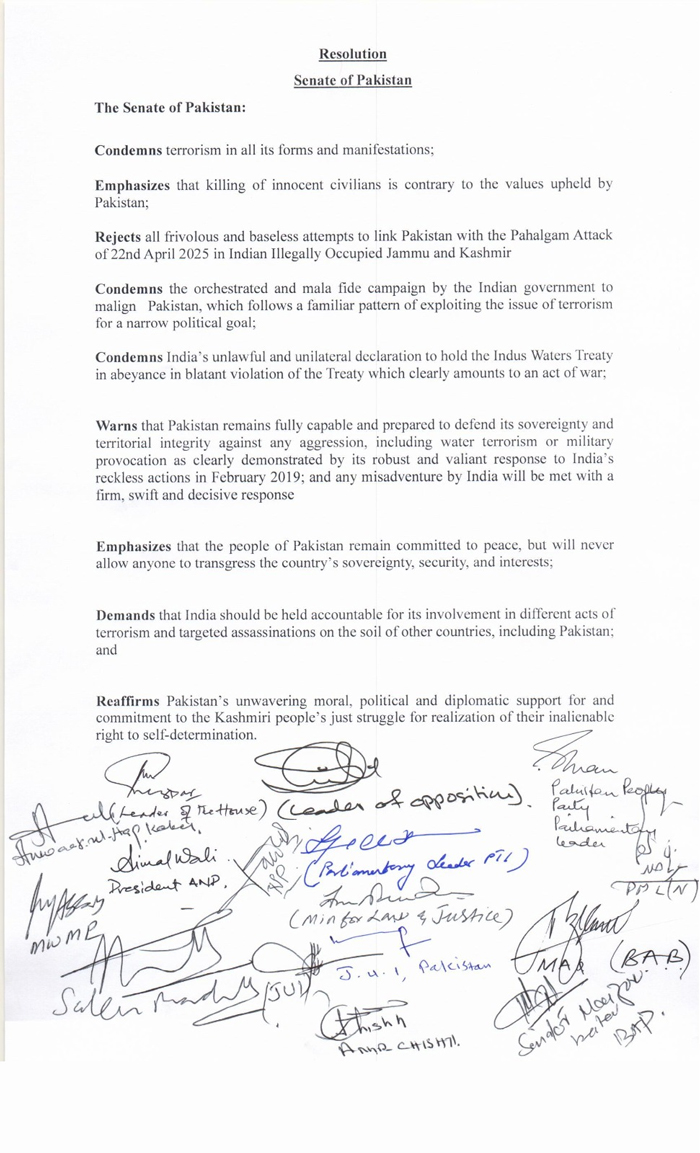
It reaffirmed the country’s unwavering support for the Kashmiri people’s right to self-determination and demanded accountability from India for its acts of terrorism and targeted assassinations abroad, including on Pakistani soil.
The resolution was in response to India's unilateral and frivolous measures taken against Pakistan following the deadly shooting in the occupied valley.
New Delhi suspended a water-sharing treaty, announced the closure of the main land border crossing with Pakistan, downgraded diplomatic ties, and withdrew visas for Pakistanis.
Pakistan, in response, ordered the expulsion of Indian diplomats and military advisers, cancelling visas for Indian nationals, with the exception of Sikh pilgrims — and closing the main border crossing from its side.
The United Nations (UN) has urged Pakistan and India to show "maximum restraint", saying that any issues between Pakistan and India should be resolved peacefully through meaningful mutual engagement.
Armed forces 'fully prepared'
Deputy Prime Minister and Foreign Minister Ishaq Dar told the House that India had avoided naming Pakistan directly but hinted at it without any evidence. He stated that India’s baseless narrative had been politically anticipated.
Dar, informing the House about the National Security Committee meeting's decisions, announced that all Indian nationals in Pakistan on SAARC visas must leave within 48 hours and noted that Pakistan is politically united in its response.
He revealed that 26 countries were briefed yesterday and others would be briefed today. He also shared that Saudi Arabia’s foreign minister has requested a conversation scheduled for 7pm.
Dar reiterated that Pakistan’s armed forces are "fully prepared" and warned that any hostile act will be met with a decisive response, echoing past retaliatory actions. He clarified that the Indus Waters Treaty cannot be unilaterally suspended, as consensus is required under the agreement.
Water, he said, is the lifeline for 240 million Pakistanis, and the National Security Committee had already declared the threat of water denial as equivalent to war.
Leader of the Opposition in the Senate, Shibli Faraz, said the resolution sends a unified message to adversaries. He criticised India’s continued efforts to discredit Pakistan and stressed that such attempts had failed. He called for India to be held accountable internationally for promoting terrorism, including in Pakistan.
Faraz questioned how such a major incident could occur under the watch of over 750,000 Indian troops in Kashmir and highlighted India’s record of opposing Pakistan on every international forum.
'Wall of steel'
Pakistan Peoples Party (PPP) Senator Sherry Rehman, for her part, said that the water terrorism currently being carried out by the Modi government was also a desire during Modi’s first term.
She pointed out that India had already rendered the Indus Waters Treaty ineffective last year. Modi, she said, had long been attempting to paralyse the agreement.
Rehman warned that if India chooses to continue down this path, it should remember that its rivers also originate from other countries. She remarked that if Modi intends to take the region back to the era of global wars, no one will stand down.
She further said that Pakistan had tried to engage India in talks regarding terrorism, but India did not respond. Concluding her remarks, she said that if India wishes to test the resolve of Pakistan’s people and armed forces, they will find them as strong as a "wall of steel".
"We did not militarise this region, you did. Even today, your military formations stand against Pakistan. The majority of your military formations are against Pakistan. You have an obsession with Pakistan. We certainly do not have any obsession with you," the PPP senator said.
During the Senate session, Awami National Party (ANP) President Aimal Wali stated that no one benefits from war. He noted that both countries possess enough power to completely destroy one another.
He called on those in India who desire peace, follow the principles of non-violence, and oppose extremism to raise their voices against war. He stressed the importance of highlighting the message of peace for the sake of the country and the nation.
Wali offered his services for any dialogue process and said he would travel for Pakistan if consent was given. He expressed his commitment to engaging in meaningful discussions, aiming to foster an atmosphere of brotherhood.
He reiterated the desire for friendly relations with India, China, Afghanistan, and Iran. He maintained that even if others attempt to disrupt this environment, Pakistan should refrain from doing so, as it would ultimately harm the nation.
He emphasised that the message of peace must be delivered in consideration of the country's welfare.
Wali questioned the closure of the Wagah Border while the Kartarpur Corridor remains open. He asked whether permission had been granted for visits to Ajmer Sharif, and if not, why Kartarpur was being treated differently.
He added that if closures are necessary, then all routes should be closed equally.




